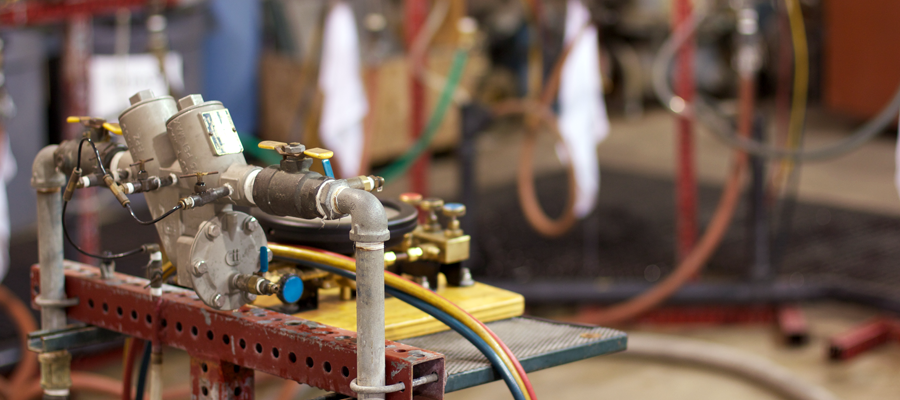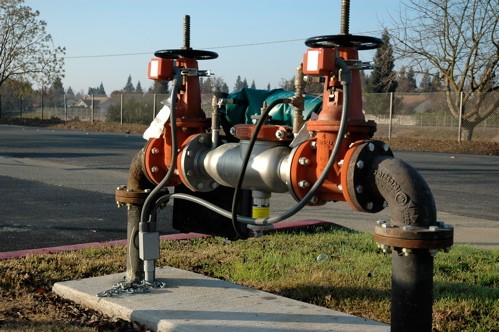The content down below involving Is backflow testing necessary? is quite captivating. Don't miss out on it.

Yes, you require to backflow test your house's water system to guarantee that the water is free of contaminants as well as hazardous degrees of chemicals. Due to the equipment called for and also room for mistake, you ought to not try to carry out backflow screening by yourself. We recommend that you call a specialist plumber every couple of years to examine your water.
Backflow Can Influence Both You and Your City
Many cities develop backflow guidelines due to the fact that dangerous heartburn can affect the general public water supply in addition to a solitary structure. Contemporary cities have backflow devices in place that shield the water supply that comes from many houses and commercial buildings. The real hazard originates from irrigation systems, which can harm the water system with toxic fertilizers, manure, as well as various other chemicals.
What Creates Heartburn?
A common cause of heartburn is a loss of water stress that triggers the water to siphon back right into the water supply. After some time, there is a loss in water stress as well as the hose pipe starts to suck the water back right into the water supply. As you can visualize, there are now chemicals from the paint that are getting in the water supply, potentially posing a danger.
Backflow Screening is Needed by Regulation in Specific Cities
Depending upon where you live, you might really be required by regulation to backflow test your law. As an example, Iowa City keeps a document of all residential properties served by the city's water. The city requires that specific "high-hazard" facilities undertake heartburn testing. In many cases, homes such as houses and also apartment buildings are impacted.
You Can Stop Heartburn
The major purpose of a backflow device is to stop water from moving backwards into your water supply. Plumbers install the device on the pipes in your residence to make sure that the water only streams in the appropriate direction.
What is Backflow?
Simply put, backflow is when water moves upwards-- the contrary direction in the plumbing system. This is also called "backpressure." When the water moves in this instructions, it can combine with hazardous contaminants and also position a danger.
Call a Plumber to Check for Heartburn Before It is Far too late
While it might appear grim, contaminated water can cause awful bacterial as well as viral infections that are challenging to deal with. If there are any unsafe chemical degrees, a plumbing company can promptly check your home's water to establish. The little investment is if you can prevent the misery that originates from drinking infected water. And if you do find that your water has high degrees of toxins, a plumber can quickly mount a heartburn avoidance gadget.
Yes, you need to backflow examination your residence's water supply to make sure that the water is totally free of contaminants and harmful levels of chemicals. Several cities establish heartburn standards because dangerous backflow can impact the public water supply in enhancement to a solitary building. A regular cause of backflow is a loss of water pressure that causes the water to siphon back into the water supply. After some time, there is a loss in water stress and also the hose begins to suck the water back into the water supply. The primary purpose of a backflow gadget is to avoid water from moving backwards into your water supply.
Backflow Testing: What Is It, and Why Is It Necessary?
What Is Backflow?
Backflow is exactly what you might imagine this somewhat gross-sounding word to mean. It is contaminated water that has reversed flow, and as a result, enters into the clean water lines of homes and businesses. Backflow is typically caused by a significant change in water pressure. This can be due to a water main break, frozen pipes or an unexpectedly high demand on the water system. It can occur at any cross-connection between clean and dirty water in residential, commercial or industrial water lines. And the worst part – backflow can contain hazardous materials like human waste, pesticides or chemicals. Needless to say, it poses very, very serious health concerns, not to mention the potential for a heap-load of expensive stress!
Backflow Prevention and Testing
In order to safeguard against backflow in standing structures, a backflow prevention device should be installed by a trusted team of professionals. Once installed, if there should ever be an unexpected or dramatic change in water pressure, the device will prevent backflow from entering into the clean water supply system. But, again, it’s important that this device is properly installed by a professional so that they can test it and ensure that the clean water line remains contaminant free. This really is key.
While personal standards and responsibilities should maintain certain routine testing requirements, there are already municipal codes in place that require annual testing of these backflow prevention devices. This ensures that they are functioning properly and that no hazardous contaminants are spilling out into the clean water supply. If, however, testing of any device is not completed on time, you should know that a property or business’ water supply might be interrupted, and the property owner might even face fines. So, to avoid this from happening to you, we recommend scheduling a backflow test well in advance.
Fortunately, here at Tritan, we can help schedule and carry out backflow testing for your property. We provide a variety of backflow-related services, including prevention device installation and testing. Call us today and make sure that this stressful problem doesn’t happen to you and your property or business.
https://www.tritan-plumbing.com/blog/2018/february/backflow-testing-what-is-it-and-why-is-it-necess/

We were made aware of that report on Backflow Testing through a friend on our other web property. So long as you enjoyed our article please be sure to pass it around. Thank you so much for taking the time to read it.
We're your answer!